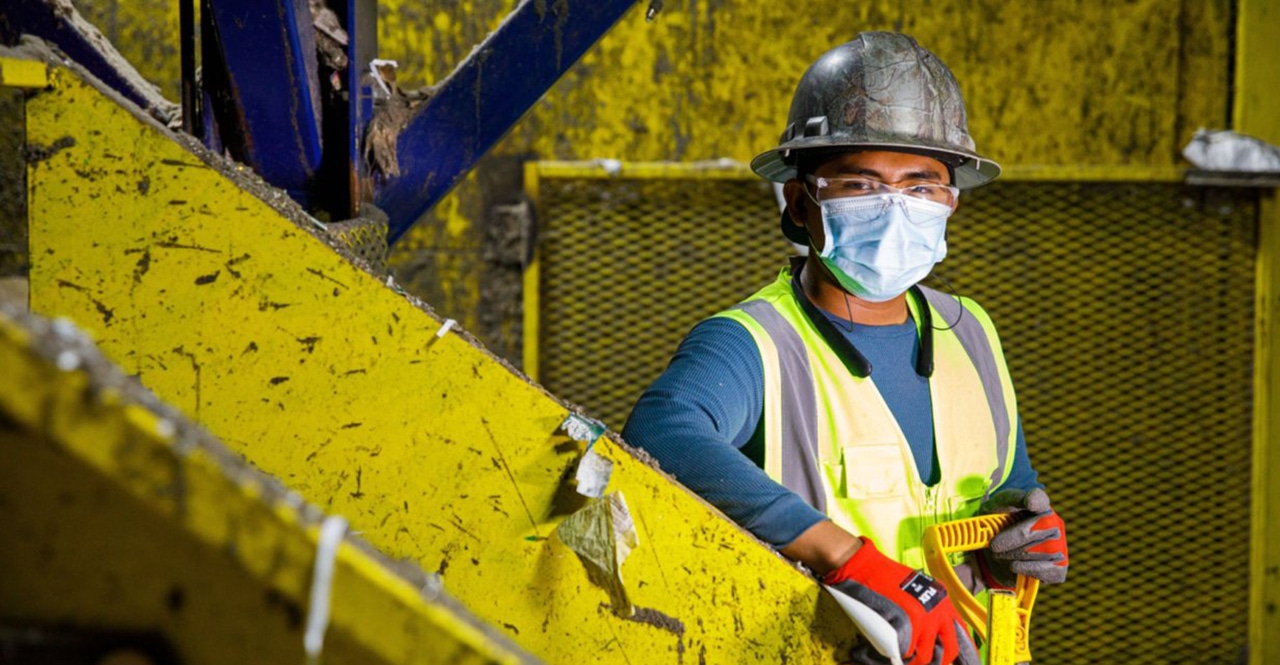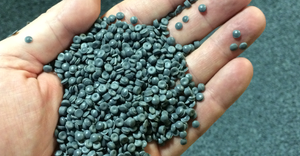Florida State Researchers Gather Waste Industry Leaders’ Best Practices Through Pandemic

Florida State University (FSU) has recruited 15 solid waste operations from varied regions for a study to analyze municipal solid waste management systems under COVID-19 conditions, with plans to create best practices should there be another pandemic.
“The objective of our study is to capture what operators of different components of the waste management system are doing through the pandemic [collections, landfill, materials recovery facility (MRF), etc.]. We are watching and documenting how each entity of the system has changed operations as challenges arise,” says Tarek Abichou, professor at Florida A&M University-FSU College of Engineering who is one of the investigators.
Abichou and co-investigator Juyeong Choi, assistant professor at Florida A&M-FSU College of Engineering, began their work in May with funding from The National Science Foundation and plan to follow participating waste operators for a total of one year. They chose entities in three states that at one time or another were especially hard-hit by the pandemic: New York, California, and Florida.
In addition to looking at facility type, Abichou and Choi are focusing on geographical characteristics (rural vs. urban); COVID-19 conditions and policies in each region; and whether waste entities rely on external sources (do they run their facilities or contract with third-party operators?)
Participants respond to monthly surveys to inform on challenges and adaptive practices they developed to stay functional. And they provide measurable data such as waste quantities and characteristics. There has been a special focus on entities’ unique objectives.
“Not every best practice will work for every entity," Choi explains. "For example, the town of New Paltz in New York [one of the participants] was selected as one of the Environmental Protection Agency’s ‘Zero Waste Cities.’ New Paltz was mandated to recycle, despite the pandemic, while some jurisdictions temporarily shut down recycling. So, the challenges are different from one entity and system to another, and how entities respond must be based on whatever objectives they have. We will make recommendations depending on their system characteristics and objectives."
Casella Waste Systems, based in Rutland, VT, was asked to participate largely because it runs multiple types of waste operations and in locations throughout the Northeast, so it could provide a fairly comprehensive picture.
Sam Nicolai, Vice President of Engineering & Compliance, Casella Waste Systems, provided a preview of some of the insight the company will provide as a study participant.
Casella’s most fundamental strategy should apply to any waste company: and that was to act fast.
“We were aggressive in terms of implementing best practices in the very beginning,” says Nicolai.
He continues, "we identified early the personal protective equipment necessary to operate. We had existing stockpiles that got us through the initial period, but we started ordering more materials in March because things were going to take longer to procure."
Casella assembled a response team that could drive trucks, operate landfills or MRFs, or provide a management team to any facility as needed amidst the pandemic. The company had weekly calls to provide managers guidance and tell them about resources to be able to act appropriately across the company footprint.
“We get information from each of the six states where we operate with regard to policies and rules, as commercial business shut down different segments at different time frames in various regions. So, we had to react in terms of waste collection based on what businesses were running and what were not running in each,” says Nicolai.
He points to communication as especially helpful –whereby management teams could hear what was successful and what did not work and apply what they learned to their facilities and customers.
“In those weekly calls with management teams, companywide, not only did we push out guidance, but they could ask questions of our tech teams or leadership teams to include folks from safety, engineering and legal,” says Nicolai.
Legal for instance has helped navigate regulations and guidance coming from each state. Engineering provides guidance on how to implement changes at each facility if there are revised permits or regulatory changes.
Among operational changes, managers adjusted frequency of pickups and size of containers according to fluctuations in amounts and types of waste, as businesses operated at reduced levels.
Nicolai is looking forward to the conclusion of the study and the subsequent sharing of information.
“We expect to hear what worked in one region versus another to help us plan the best response for the next type of situation," he says. "Ideally we won’t have another pandemic, but we will be prepared if we do, and we think these strategies will be applicable in a variety of situations, like natural disaster responses in the aftermath of hurricanes, earthquakes or large fires."
The Solid Waste Authority of Palm Beach County (SWA) is another study participant. The governmental entity, which is a dependent special district of Palm Beach County, Fla., provides solid waste disposal and recycling services to 1.4 million residents and businesses. Its top priority has been safety of its 400 employees.
“We run a very labor-intensive operation, and among things that we did is assign 90 percent of our administrative staff to work at home. Most had laptops, and if they didn’t, we bought laptops. We have virtual private network capability, so employees had secure access to our systems and servers,” says Ramana Kari, Chief Engineer at the Solid Waste Authority of Palm Beach County.
Customer service team members had calls routed to their homes with no interruptions in service or quality. SWA started bringing staff back to the office part time in September, with precautions.
“We are alternating days people come in and alternating spaces that are used so no two office spaces are occupied at the same time. And we have employees take their temperature before they come in. We continue to follow Centers for Disease Control and Prevention (CDC) guidelines to ensure the safety of our employees,” says Kari.
Out in the field, each truck has only the driver, to mitigate exposure. And all equipment is sanitized at the beginning and end of each shift.
As another measure to reduce exposure risk, SWA temporarily closed five of seven of its drop-off locations for household hazardous waste and electronic waste. It also temporarily shut down its customer convenience drop-offs for trash, yard waste, and construction and demolition debris at its landfill when it saw a huge uptick in volumes as people cleaned their garages and yards.
Throughout this pandemic, the Authority has continued its usual logistics whereby haulers bring loads to transfer stations and tractor-trailers move the consolidated waste from those points to one of two waste-to-energy facilities.
Ensuring clear communication with residents and haulers has been a focal point.
“We have an advantage to start since we take care of all the county’s waste, so everyone gets a consistent message,” says Kari.
“Our haulers have their own corporate policies, so we advised them to follow their own health and safety policies but gave them general guidelines, mainly focusing on CDC guidelines and ensuring their safety policies are in coordination with SWA’s operations.
Our message to residents was, ‘Here are the do’s and don’t’s as far as what can go in recycling versus trash, and make sure that all items that could potentially spread infection be double bagged in plastic so handlers don’t get exposed,’” he says.
Speaking of the study and SWA’s role, Kari says, “It’s a specialized industry with only so many people doing this work, so there is limited data. We wanted to help.
With the scale and types of operations we have, to include waste to energy, landfills, recycling, hauling and biosolids processing, we hope information on what we did at each operation will benefit the solid waste community in areas relevant to them.”
Once the study is complete (mid-2021), Abichou and Choi plan to convene a workshop with two focuses: one will be to share the best practices with study participants. Another focus will be to discuss with professional organizations, including The Environmental Research and Education Foundation (EREF) and the Solid Waste Association of North America (SWANA), how to disseminate the information, industrywide.
“We don’t want to just write a scientific article. We would like to make practical recommendations easily available in a one-stop database, to improve waste management operators’ resiliency through future pandemics,” says Abichou.
About the Author
You May Also Like




